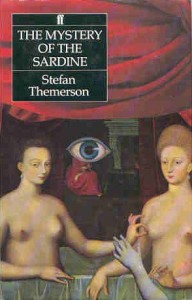Review


This is a note on both The Mystery of the Sardine and Hobson's Island, Stefan Themerson's two final novels before his death in 1988. According to the introduction to the latter, the previous thing that Themerson had published was an essay suggesting that a university should fund a "Chair of Decency". "Contrary to what clergymen and policemen want us to believe, gentleness is biological, and aggression is cultural; not vice versa.... All ideologies, all missions, all aims corrupt.... Because, when all is said and done, decency of means is the aim of aims." These are themes emphasized over and over in Hobson's Island and, to a less obvious extent, in The Mystery of the Sardine. They are books written by someone who is not afraid to turn conversations into philosophy lectures, for whom characters are vehicles for ideas, and whose plots are quite deliberately ridiculous; after all, nothing could be more absurd than the human predicament in that Cold War age when all ideologies and all reason had led to the brink of global annihilation. To judge by these novels, Themerson seems similar to one of the characters in Hobson's Island, Sean D'Earth: a reluctant atheist who thinks there ought to have been a just God, and a betrayed lover of science who sees his beautiful vision of evolution thriving on the love of parent to child cruelly perverted by weapon-builders. Yet, until the despairing end of the second book, the mood is mostly one of gentle, if uneasy, lunacy, in which terrifying events can be overcome by those characters (mostly women) who understand that "Axioms are mortal, politics are mortal, poetry is mortal,–good manners are immortal."










